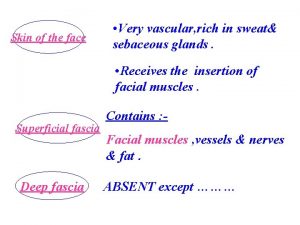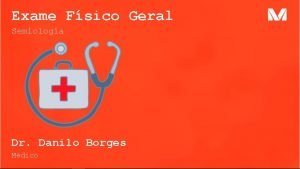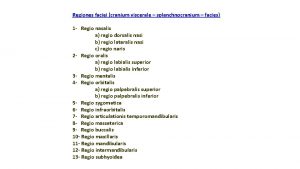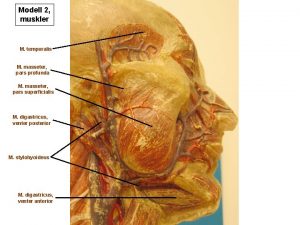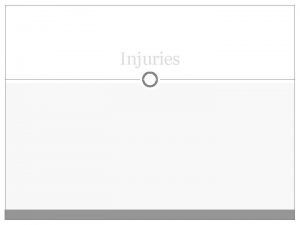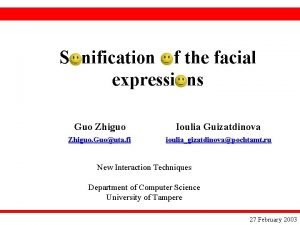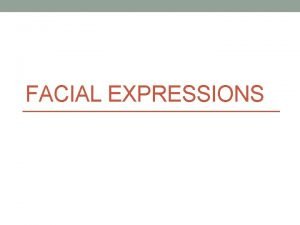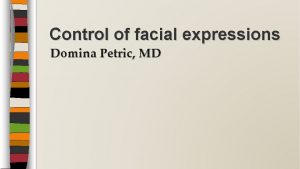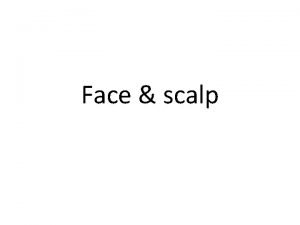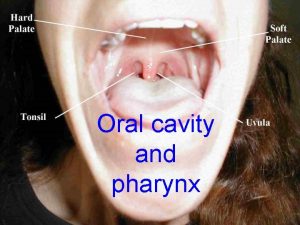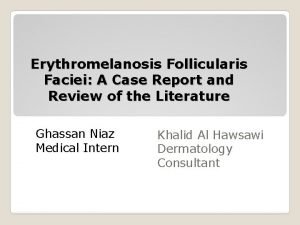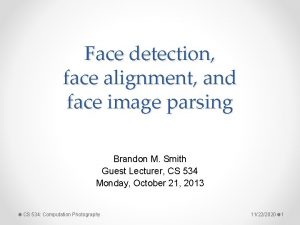FACIAL EXPRESSIONS GENERAL TERM FACIES FACIEI F FACE














- Slides: 14

FACIAL EXPRESSIONS GENERAL TERM - FACIES, FACIEI, F. – FACE; EXPRESSION, COUNTENANCE (TYPICAL FOR CERTAIN DISEASE OR STATE)

CATEGORIES OF FACIAL EXPRESSIONS • Terms referring to healthy or pathological state • Terms referring to a certain disease/dysfunction of a certain organ (most important) • Eponyms (i. e. terms derived from the names of real persons)

TERMS REFERRING TO HEALTHY OR PATHOLOGICAL STATE • F. composita – The normal, natural face of a healthy person • F. dolorosa – facial expression of a person suffering from pain’ – From dolor, oris, m.

• F. febrilis – feverous face expression, i. e. restless, discomposed characterized by shiny eyes and redness in face – From febris, f. • f. plethorica - hyperemic face with florid, red complexion due to excessive circulation of blood

TERMS REFERRING TO A CERTAIN DISEASE/DYSFUNCTION OF A CERTAIN ORGAN • f. alcoholica / aethylica - bloated, persistently red face as a consequence of excessive drinking • f. pneumonica - one-sided blush on the same cheek as the lung affected by pneumonia – From pneumonia, ae, f. • f. nephritica - oedematous, pale face due to the inflammation of kidneys with swelling appearing most around eyes – From nephros, i, m. > nephritis, itidis, f. • f. cardiaca - oedematous, pale, and yellowish face with cyanotic hue; half open mouth, cyanotic lips; typically accompanies heart failure – From cor, cordis, n.

• f. anaemica - very pale face with greenish tint in patients with iron deficiency – From anaemia, ae, f. • f. mitralis - blush on cheeks, cyanotic tip of the nose and ears; the patient looks younger his/her age; typical of patients with mitral stenosis • f. gastrica - facial expression typical of acute stomach problems; deep nasolabial fold – From gaster, (e)ris, f. • f. tuberculosa / hectica - exhausted, pale face with blush on cheeks, “burning” eyes, dry lips, excited countenance, half open mouth – From tuberculosis, f.

• f. morbillosa - “unhappy” facial expression with rash and reddened eyes sensitive to light; typical of children suffering from measles – From morbilli, orum, m. (= measles) • f. syphilitica - melancholic facial expression with saddle nose deformation; typical of the patients having the late congenital syphilis (syphilis congenital tarda)

f. tetanica / risus sardonicus - facial expression typical of tetanus patients; mouth widened as in laughter, but the skin on forehead as if expressing grief; tonic spasm of mimic and chewing muscles f. leontina - the lion-like facial appearance occurring in patients with certain forms of leprosy

EPONYMS • facies Hippocratica → facies abdominalis - sunken eyes, pinched nose, deadly livid and cyanotic skin sometimes covered with large drops of cold sweat, specific for the collapse due to severe disease of abdominal organs accompanied by peritonitis (rupture of gall bladder, perforated ulcer in stomach or duodenum) – Characteristic for people in late stage diseases/right before they pass away – Note the sunken appearance

• facies Parkinsonica / oleosa amimic face with characteristic stare; the patient seems to lean forward to the observer; oily skin of face, sometimes drooling occurs; typical of patients with advanced Parkinson's disease (morbus Parkinson)


ANSWER THE FOLLOWING: • Name 2 eponyms • Which facial expressions are derived from the words below: morbilli, orum, m. gaster, (e)ris, f. • Which facial expressions do these pictures describe?

LABEL THESE FACES ACCORDING TO THE NAMES GIVEN • F. anaemica • F. mitralis • F. gastrica • F. tuberculosa

Thank you for your attention! - Dorthe Aslaksen and Jesika Agarwala Group 31
 Facies parkinsonica
Facies parkinsonica Facies peritonealis
Facies peritonealis Face veins and arteries
Face veins and arteries Facie basedowiana
Facie basedowiana Corpus medical terminology
Corpus medical terminology Atlarda burun meri sondası
Atlarda burun meri sondası M temporalis m masseter
M temporalis m masseter Contusio columnae vertebralis cervicalis
Contusio columnae vertebralis cervicalis Chapter 10 motivation and emotion
Chapter 10 motivation and emotion Unconscious facial expressions
Unconscious facial expressions Nification
Nification Navarasam face expressions
Navarasam face expressions Why are facial expressions important
Why are facial expressions important Facial expressions are a part of what mcq
Facial expressions are a part of what mcq Hci-asm-gji -site:youtube.com
Hci-asm-gji -site:youtube.com


